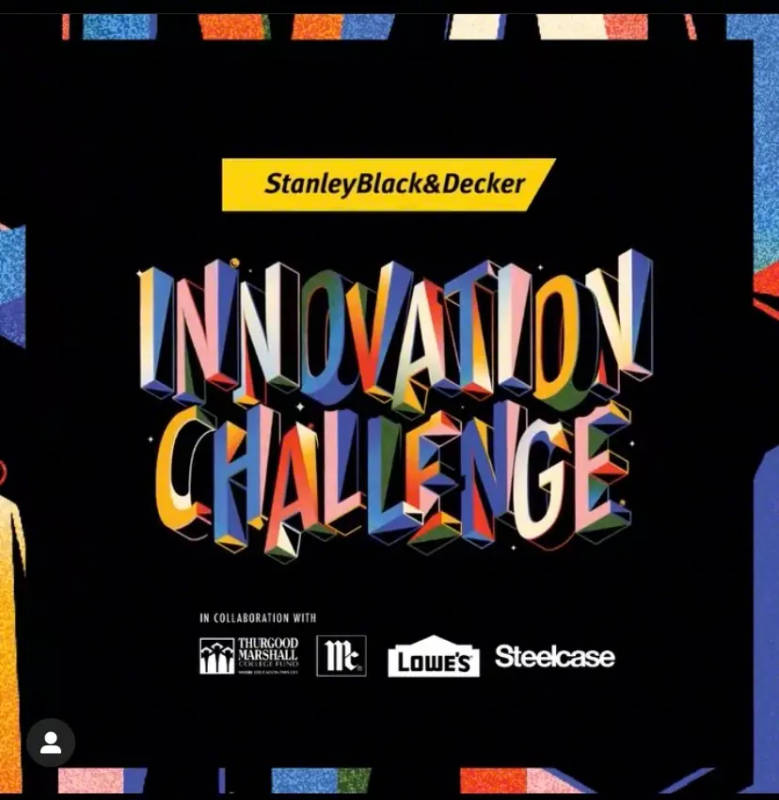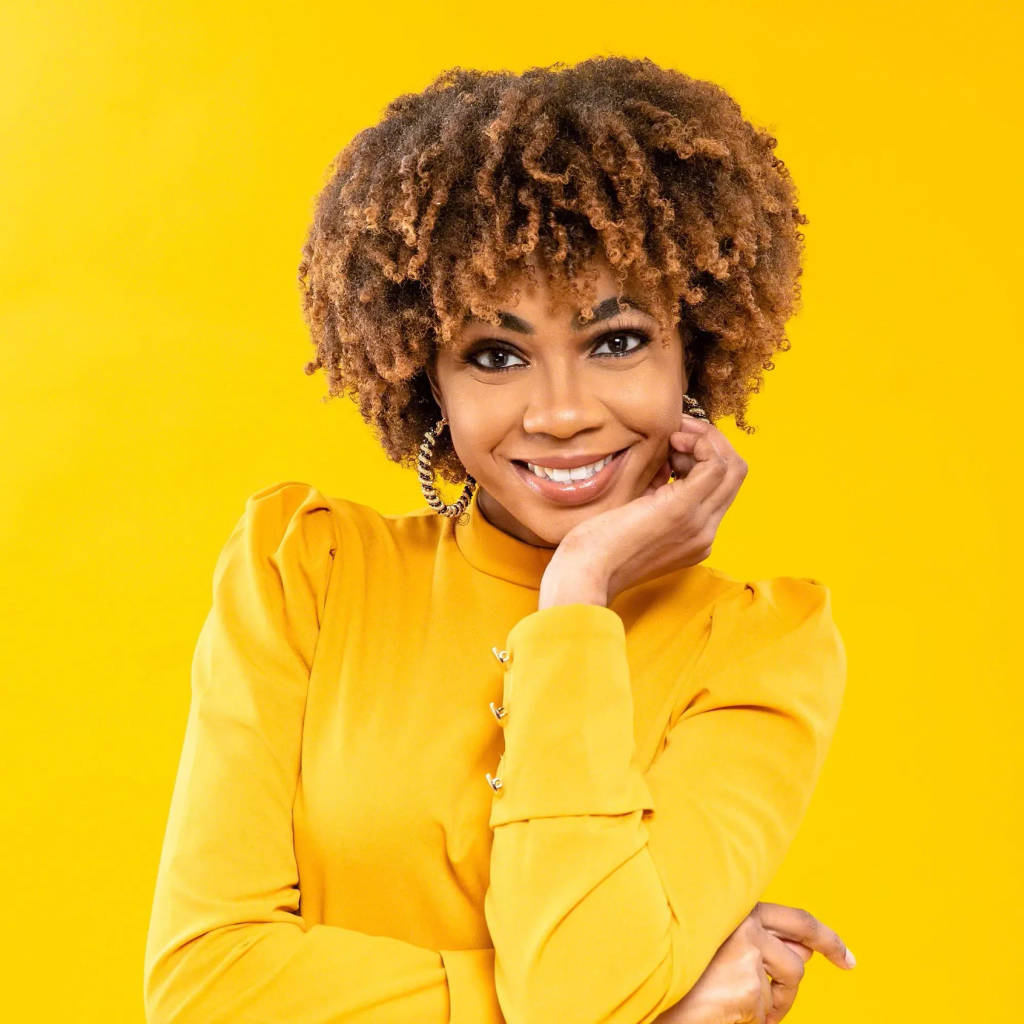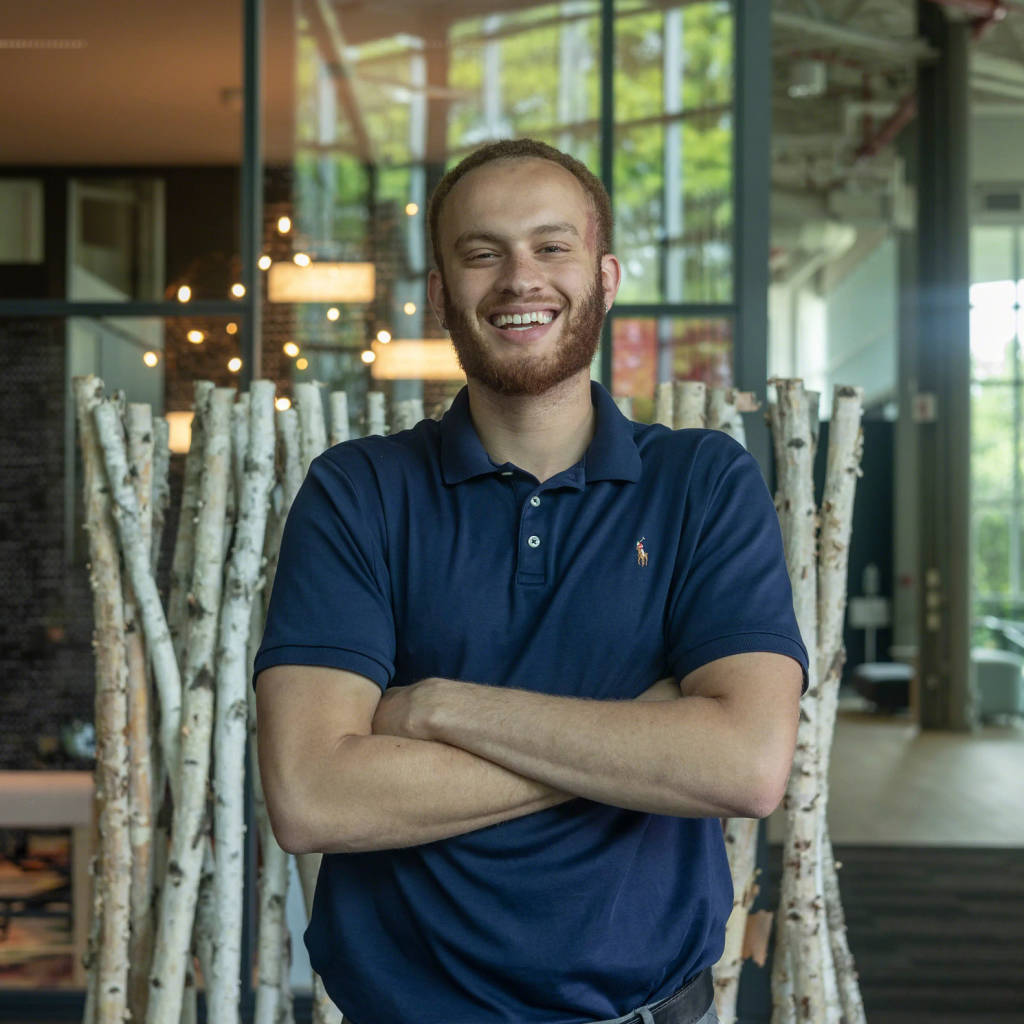Culture of Opportunity
Steelcase partners with Thurgood Marshall College Fund to engage and invest in the diversity of future leaders.

Building diverse, high-performing teams that reflect our communities, ensuring equitable development and creating an on-going culture of inclusion are cornerstones to the Steelcase mission . We know that cultivating robustly diverse slates of qualified candidates leads to a greater breadth of skills and experiences and a stronger overall organizational fabric. In essence, the success of a global company relies on removing barriers to opportunity.
The recent investment in the Stanley Black & Decker Innovation Challenge, partnering with the Thurgood Marshall College Fund, is one example of the intentional approach Steelcase takes toward DEI by investing in future leaders. The Thurgood Marshall College Fund specifically represents member schools of the Historically Black Colleges & Universities (HBCU) union. The Innovation Challenge incorporates engaging business models, design thinking, venture ideation and intensive pitch sessions. Students who land internships and exposure to corporate opportunities at Steelcase and other sponsor organizations.
It’s an opportunity for organizations to connect with young talent like interns Jackeima Flemming and Nico Hardin, who have a vision and drive for a better future. Both Flemming, a product marketing intern, and Hardin, a CEO business management intern, came to the Steelcase community through the Innovation Challenge.

As a student from a predominately black college, Flemming believes there are “uncomfortable truths” that can stigmatize schools like hers – and stand in the way of high-achieving students receiving valuable opportunities and corporate exposure. She feels historically black colleges are traditionally marginalized; its students, typically misunderstood.
“Because of those perceptions, sometimes people think we do not have the best resources or the best talent. But it’s the exact opposite,” Jackeima explains.
“Since we know it’s a struggle to be seen as the ‘best of the best,’ to have to fight for the resources that come more easily to other schools, it causes us to be a really resilient set of individuals.”
Jackeima FlemmingInnovation Challenge Scholar + Steelcase Intern

Nico says he recognizes Steelcase’s stated goals, the progress it’s made so far and what the organization has yet to achieve in its quest for excellence in diversity – and believes by engaging in programs like the Innovation Challenge, Steelcase is on the right path.
“When you’re trying to solve work solutions for the world – you need to foster a culture consisting of global voices.”
Nico HardinInnovation Challenge Scholar + Steelcase Intern
BOUNDLESS POSSIBILITIES
Both Jackeima and Nico say the Innovation Challenge was special because it allowed for experience and access to real-world corporate leaders and a host of challenging scenarios based in reality. Five different teams were each presented with realistic challenges faced by large organizations, and the students were tasked with devising innovative solutions to address them. Nico’s team took on the challenge of putting themselves in the shoes of senior Steelcase leadership to come up with safe solutions for bringing people back to the office during the pandemic.
“For me, learning to pitch was huge. In a normal job, that’s something you’re going to do all the time. I don’t remember learning that in class,” Hardin said. “It’s just invaluable.”
Steelcase Global Talent Acquisition Consultant Malissa Moore was blown away by the insights of the student projects. Moore says the challenge was an important opportunity for these students to experience a project beyond a syllabus, grades and term papers.
“At the end of it, just to see how cool it was for them to package everything and present it succinctly and smoothly. If you didn’t know better, you would think you’re watching senior level executives,” Moore said.
EQUITABLE TALENT PIPELINES
Moore was involved in the early evolution of the company’s involvement with the Innovation Challenge, and says programs like it are a key way large companies can proactively grow more racially-diverse talent pipelines.
“We have to be more intentional about engaging and partnering with diverse student organizations like Thurgood Marshall,” says Moore. “We have to get even more specific about turning to and engaging HBCUs to remove barriers to opportunity for talent of color.”
Moore acknowledges the tight labor market has made the talent pipeline overall more competitive than in years’ past, meaning Steelcase has to work harder than ever to compete for talent. That meant getting more creative in how they engaged with the black college population. With over 300,000 students across 47 public institutions, Moore says it makes good sense to partner with the Thurgood Marshall Foundation.
“If we want to continue to bring in more talent, we knew we needed to partner with the entity that’s done it the longest and the best,” Moore says.
As a program insider, Nico agrees. “When you start bringing in people from different cultures, different backgrounds and different regions, you get more perspectives; you get a lot more diverse input.”
Steelcase is once again investing in and partnering with the Innovation Challenge in 2022 and looks forward to continuing to nurture the positive relationship with the Thurgood Marshall College Fund and its 35-year legacy of scholarship excellence.
Learn More: The Steelcase Commitment to diversity, equity and inclusion.


